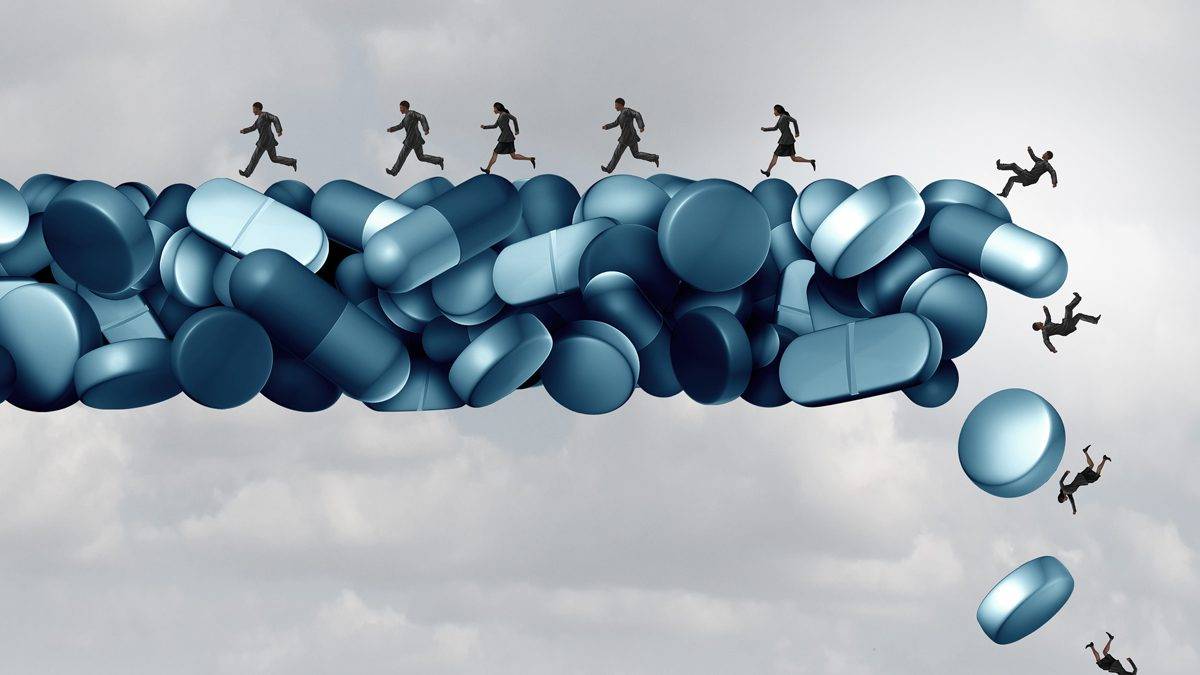Unbeknownst to Most, Significant Loss is Intrinsic to Addiction Recovery
As I wrote in last month’s post, the loss is an unavoidable part of life. Over time, everyone experiences a range of significant losses, and as painful as it often is, the grieving process is a necessary and healthy part of mourning and getting through those losses. However, for people with addiction, loss and the grief that accompanies it have additional layers.
Dan Mager, MSW is the author of Some Assembly Required: A Balanced Approach to Recovery from Addiction and Chronic Pain. He received his MSW from the Hunter College of the City University of New York, School of Social Work, and is a Certified Diplomate in Clinical Hypnotherapy. He has been a psychotherapist, clinical supervisor, and clinical director, across a wide range of behavioral health and substance abuse treatment settings, including community-based outpatient services, residential treatment centers, and hospital-based programs.
Editor: Nadeem Noor
Loss can both contribute to and result from addiction. Many people in active addiction use alcohol and other drugs to lessen, numb, or avoid distressing feelings of grief, sadness, depression, or anger related to lose. Of course, this becomes a deviation-amplifying dynamic as using ultimately results in more losses—in the form of damage to/termination of relationships, job/career, financial status, health, etc.— leading to more of those same painful emotions.
In the face of such increased feelings of grief and loss the need to use drugs or activities such as gambling, eating, or sex to numb or otherwise avoid emotional pain only becomes stronger. For those in recovery—particularly early recovery—the distress of significant loss has the potential to precipitate a return to active addiction.
Even when efforts to avoid distressing emotions are temporarily successful, those feelings don’t simply disappear. Lightning always finds a way to ground, and feelings always find a path to expression. If we don’t allow ourselves to feel them and, as necessary, talk about them, if we avoid or suppress those feelings, they invariably come out “sideways”—in indirect forms via behavior. When feelings are expressed through behavior, they typically operate unconsciously, outside of our ability to steward them. When this happens we are on autopilot, behaving reflexively and habitually, often engaging in behaviors that are unhealthy and self-defeating—even when we do not want to act that way.
It’s similar to a pressure cooker. Pressure cookers are instruments of balance inasmuch as a lid is required to keep the contents from spilling all over the place, but a means to release the accumulating pressure is also necessary. If there is no release valve to provide a safe path to expression, what happens? The pressure builds up until the vessel can no longer contain it and the container explodes, causing potentially serious damage. In the same way, if we do not provide our feelings a safe (though oftentimes uncomfortable) path to expression by feeling and talking about them consciously, they will still find a way out, often through some sort of unhealthy and/or explosive behavior.
Recovery-Specific Losses
Loss is a natural part of the process of recovery. There is a saying in some twelve-step programs that recovery requires changing the “playmates, playgrounds, and playthings” associated with one’s active addiction. This can mean ending friendships, cutting ties with certain family members, leaving a lifestyle, giving up a job/career, or relinquishing certain possessions that conjure triggers to use alcohol or other drugs. Feelings of loss and subsequent grief occur with each “thing” that must be given up in order to achieve and maintain recovery.
In addition to these significant losses, there is the most profound recovery-specific loss of all: that of mind- and mood-altering substances themselves and the immediate neurochemical reward and relief they provided. Despite the devastation and destruction addiction may have caused in a person’s life, giving up alcohol and other drugs usually represents the loss of one’s primary method of coping/best friend/closest confidant. The relationship that people with addiction have with these substances is often the most intimate they have, period. The significance of this loss is generally underappreciated and inadequately addressed in addiction treatment.
As difficult and chaotic as life in active addiction can be, those caught up in it know how it works and what to expect. Substances and their effects, even with the diminishing returns related to tolerance, are predictable. This familiarity creates a certain perverse comfort. In contrast, recovery is fraught with uncertainty and the fear intrinsic to the unknown. Once someone enters recovery and the drug-induced fog lifts, a lifetime of unresolved loss, grief, and other distressing emotional loss may begin to surface. This makes early recovery an especially challenging time.
Another twelve-step aphorism related to recovery is: the good news is, you get to feel your feelings; the bad news is, you get to feel your feelings. This double-edged sword is elegantly depicted in the Zen proverb, “The obstacle is the path.”
Trying to avoid or suppress painful emotions is similar to being mired in quicksand. The harder we struggle to get free, the more anxiety and stress we experience, the deeper we sink and the more stuck we become. Avoidance of uncomfortable feelings inevitably backfires—extending and exacerbating our emotional pain. It is only when we can move into our experience and accept our emotions, observe them, allow ourselves to feel and express them, and let what is there simply be, that they gradually and progressively lose their grip and begin to dissipate on their own.

